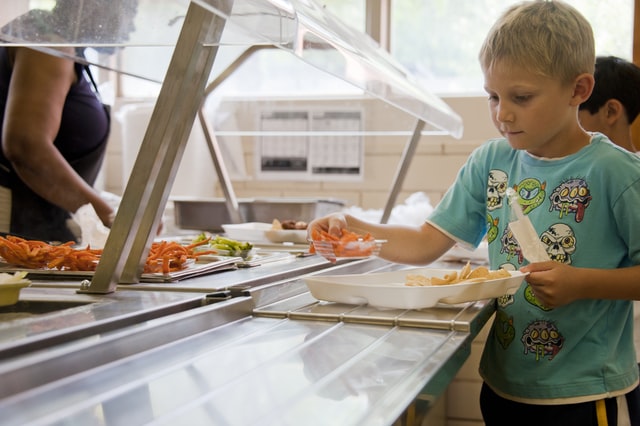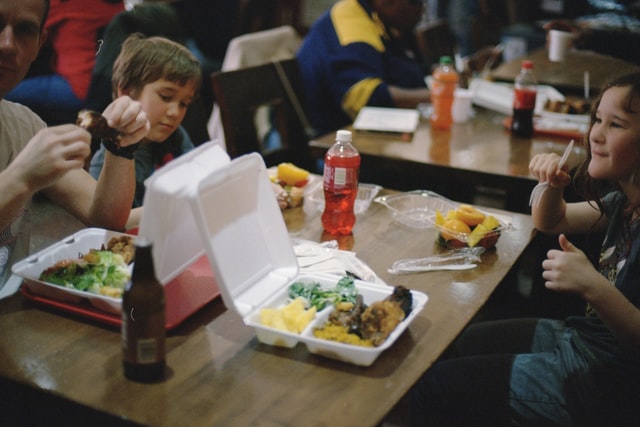
- Better Society -
- 4mins -
- 260 views
All California Public School Students to Have Access to Free Meals
California has become the first state to permanently adopt free school breakfast and lunch for all K-12 public schools students, no questions asked, and regardless of household income.
California permanently adopts free school meals for all K-12 public schools students
This month, California became the first state in the union to permanently adopt free school meals for all K-12 public school students after the legislature and the Governor came to an agreement on the 2021-2022 budget. According to School Meals For All, a coalition of more than 200 organisations representing health, education, labour, agriculture, and food banks, this program will reduce child hunger, support essential school nutrition workers and boost California’s agricultural sector. — Al Día

Now, all students in California public schools will be eligible for free breakfast and lunch
The Free School Meals for All Act of 2021 was introduced by Senate Budget Committee Chair Nancy Skinner. In a statement, Skinner said she is proud the bill passed, and expressed gratitude to the coalition, Gov. Newsome and the legislature for “championing the cause.”
On Monday, June 28, the legislature approved SB 129, which included provisions related to School Meals for All.
The new school nutrition program comes with an increase in state meal reimbursements by $54 million in the 2021-22 fiscal year and $650 million ongoing Proposition 96 funding beginning in 2022-23, to cover the costs of offering breakfast and lunch for all students.
A full implementation of universal free meals is particularly important for families disenfranchised by the current system, like undocumented families, families of four who make more than $48,470 per year, but still experience food insecurity, and eligible students who don’t participate due to the stigma associated with free school meals.
According to the U.S. Department of Agriculture, schools enabled to provide free meals to all students throughout the pandemic are set to expire at the end of the 2021-22 school year, at which point, California’s public schools would be reimbursed for providing universal school meals.
Some 60% of all students in the state — more than 3.6 million children — qualified for free or reduced-price meals in the previous school year. Now, all students in California public schools will be eligible
Source: Al Día

Food insecurity disproportionately impacts Black and Latinx households
On Thursday 1 June 2021, Brittany Valentine, for Al Día wrote that the need for free meals can be seen when observing the number of families that frequently pick up food at schools and at food banks.
Between March to December 200, California public schools offered more than 450 million free school meals, providing families with vital nourishment during the pandemic-related school closures.
In April 2020 alone, California food banks provided meals to more than 1.5 million households, feeding 62% of the total number of individuals served in all of 2019. Right now, about 20% of all households in the state are battling hunger.
The issue of food insecurity disproportionately impacts Black and Latinx households.
Currently, about 35.5% of Black families report struggling to keep food on the table, and 27.3% of Latinx families report food insecurity. These numbers are double those of pre-pandemic rates, impacting about 8 million households in the Golden State.
Co-sponsors of the Free School Meals for All Act include Kat Taylor, TomKat Ranch Educational Foundation, the Center for Ecoliteracy, NextGen California, and State Superintendent of Public Instruction Tony Thurmond.
“In my district, it’s not unusual to see school districts with upwards of 85% of its students on free or reduced-price lunch. That’s why I have fought for several years to help make this funding a reality, because no child should ever go hungry,” said Assemblywoman Luz Rivas.
According to a study from Tufts University, school meals are the healthiest source of meals for American children, and a body of evidence shows that students who participate in school breakfast programs have improved attendance rates, better behavior and academic achievements.
“California is showing national leadership making school meals free for all, ensuring that all children in California —12% of the children in the nation— have the nutrition they need to learn and thrive in school,” said Luis Guardia, President of Food Research & Action Center.
Source: AlDíaNews.com


